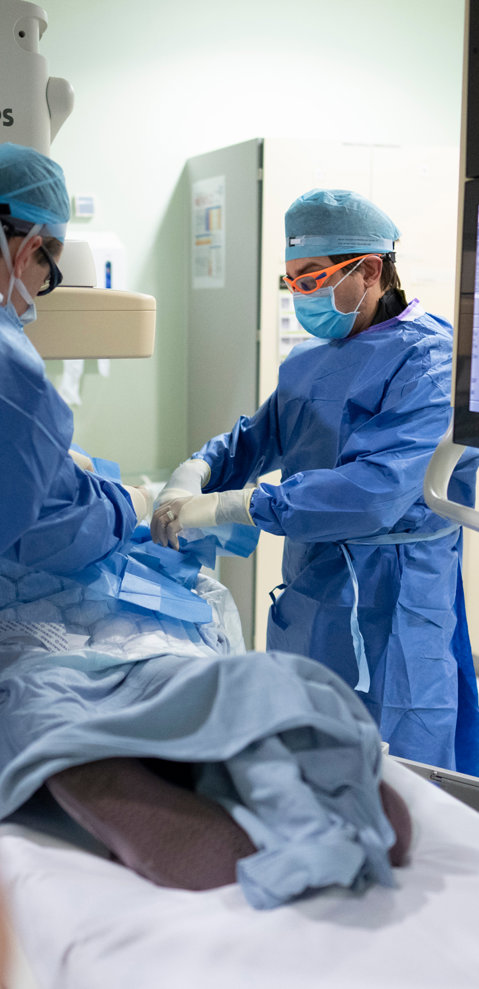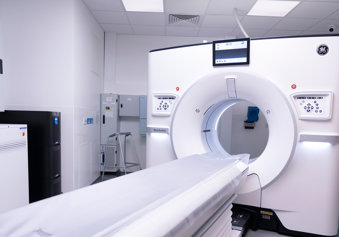
Careers in interventional radiology
Interventional radiologists perform minimally invasive image-guided procedures in many areas of the body, including providing emergency treatment for patients with bleeding sepsis and stroke. The benefits of IR typically include faster recovery times, shorter hospital stays and reduced morbidity and mortality.
Interventional radiology training takes an indicative period of six years. For the first three years, IR trainees will follow the clinical radiology curriculum, working towards achieving general radiology capabilities in practice (CiPs). In the following three years, they will maintain and build on these general radiology capabilities while developing the advanced interventional radiology skills to meet the interventional radiology-specific CiPs described in the IR curriculum.
"This is a landmark document in terms of providing a clear focus on and for women in IR. Role models are incredibly important in shaping career choices and I hope the experiences of women in IR are both motivating and inspiring to readers and highlight that women can, and do succeed in this rapidly advancing field of image-guided surgery."
Dr Rosemina AhmadChair of the BSIR Women and Diversity Committee
Want to make a difference in getting underrepresented people into Interventional Radiology? Check out our mentoring schemes.
Clinical radiology
We’re here to support you throughout your career in clinical radiology – offering innovative training and promoting the specialty so that you have the resources you need to deliver better patient care.
